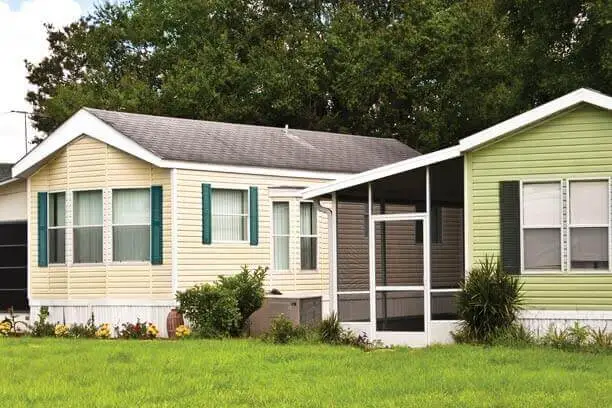Modular vs. Manufactured Homes: What’s the Difference?


You may have heard the terms “manufactured home” and “modular home” used interchangeably, but they’re not the same thing. So, what is the difference between a modular and manufactured home? Some of the confusion stems from the fact that modular homes are manufactured. But there are key differences between modular and manufactured homes.
Read on to understand the difference between modular, manufactured and mobile homes and whether it affects your insurance coverage.
A modular home is a home that is entirely constructed in a factory and transported to the build site on a flatbed truck. These homes must meet strict quality-control requirements before the home can be delivered to the location. In general, modular homes are treated similarly to site-built homes even though they are assembled from pre-built sections. Like site-built homes, modular homes are typically set on a traditional foundation.
You’ll find that modular homes allow for more customizations than manufactured homes, but you won’t have as many options as you’d get with a site-built home. Another key difference between a modular and manufactured home is that modular homes must be structurally inspected by professionals to adhere to local building codes.
A manufactured home is the most recent label for what were once called mobile homes. These homes are often relatively inexpensive, small and, unlike a modular or site-built home, aren’t required to comply with local building codes. Instead, manufactured homes must conform only to Housing and Urban Development (HUD) code, which ensures manufactured homes are safe and built according to quality standards. Manufactured homes built before the HUD code went into effect on June 15, 1976, are not considered compliant with HUD code.
Manufactured homes are built on a permanent frame that includes a transportation system (such as wheels and a hitch) that can be removed when the home is attached to a permanent foundation. They can be set on piers, a crawlspace or a conventional foundation, depending on the needs of the buyer. Manufactured homes are available in three sizes: single wide, double-wide and triple-wide.
These homes have the obvious benefits of mobility and affordability. They can allow a buyer to make a home purchase without a serious monetary or geographical commitment.
Insurance for modular homes is the same type of homeowners insurance as that of a traditional site-built home. If you own a manufactured home, you’ll likely have to purchase mobile home insurance, but the coverages can be very similar to your standard homeowners insurance.
Home takes many forms, but one thing remains the same: You want your home to be protected. No matter what type of home you purchase, you may want to consider:
This coverage pays for a new mobile home of similar style and cost if your newer mobile home (typically less than five years old) is destroyed by a covered loss. You’ll need separate coverage for your detached garage.
Valuables like cameras, jewelry and electronics may not be covered or special limits may apply. You may need to review whether additional coverage is needed.
If someone gets hurt on your property, are you protected? With umbrella coverage, you can be.
Residential Equipment Breakdown Coverage
This coverage can protect your home systems in the event they break down. This includes furnaces, air conditioners, hot water heaters and other appliances.
Whether it’s your home, your car, your family or your future, Farm Bureau is here to help you protect it. Contact your local Farm Bureau agent today to create a plan built for your needs.